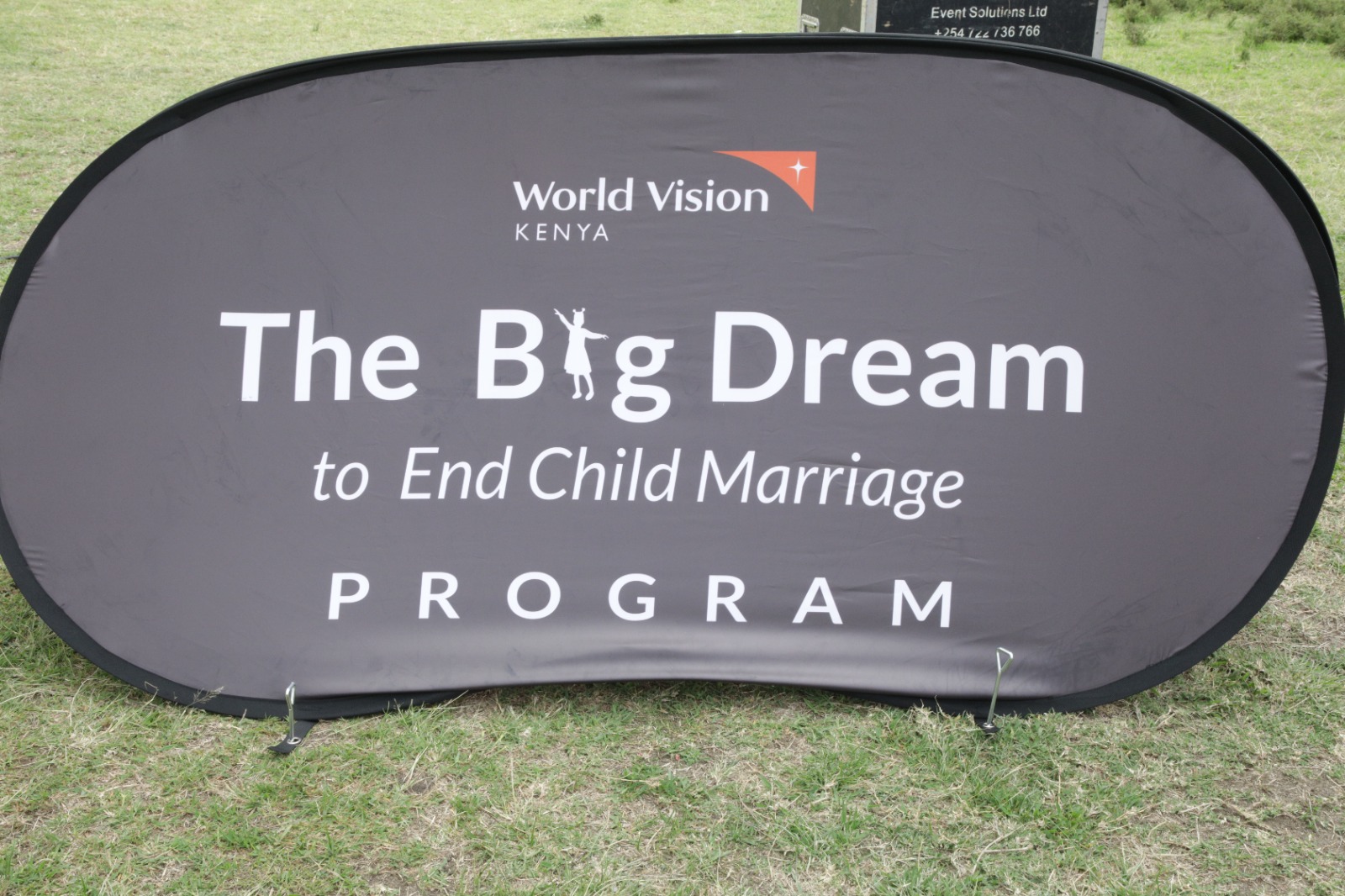World Vision Kenya Thursday launched ‘The Big Dream to End Child Marriage’ program, a comprehensive initiative that builds upon and expands the successful Kenya Big Dream (KBD), designed to combat child marriage across seven counties in Kenya.
Building on the success of the KBD program, the new initiative aims to significantly reduce the prevalence of child marriage by 2030 while promoting gender equality and protecting girls’ rights.
According to UNICEF’s 2022 report on child marriage in East and Southern Africa, over 50 million of these child brides reside in Eastern and Southern Africa alone, with nearly one-third (32 percent) of the region’s young women married before age 18.
The numbers in our neighboring countries are deeply concerning: 4.2 million child brides in Kenya, where 23% of women ages 20-24 were married before their 18th birthday; 17.3 million in Ethiopia, where 40% of young women face early marriage; 1.4 million in Somalia with 35% married before 18; and 1.3 million in South Sudan, where more than half of young women (52%) were married as children.
The KBD program was initiated in 2019 and has since reached over 1.4 million people in Baringo, West Pokot, Samburu, and Migori counties, addressing critical issues such as female genital mutilation (FGM) and violence against children.
‘The Big Dream to End Child Marriage’ program will now expand these efforts to include Baringo, Turkana, Samburu, Marsabit, Migori, West Pokot, and Narok counties—regions where child marriage is deeply entrenched due to cultural, social, and economic factors.
‘‘At World Vision, we have set an ambitious goal: to positively impact the lives of 150 million vulnerable children by 2030. The Big Dream to End Child Marriage program is a crucial component of this global strategy.
It aligns perfectly with the UN Sustainable Development Goals, particularly SDG 5 on Gender Equality, reminding us that ending child marriage is not just a moral imperative, but a necessary step towards achieving broader development goals.’’ Lilian Dodzo, Regional Leader, East Africa, World Vision said.
The program will empower girls, enhance their access to education, and foster community engagement to create a sustainable end to child marriage. The key areas of focus include:
Education Access where the program focuses on increasing girls’ access to quality education through scholarships and support programs.
Similarly the program aims at strengthening child protection systems by collaborating with government bodies to enforce laws and policies protecting children from harmful practices.
Additionally, the program will focus on behaviour change by engaging communities to challenge harmful social norms and promote gender equality.
KBD program also focuses on economic empowerment where it provides financial literacy training and vocational skills to reduce economic vulnerability among families.
The other key focus is Water and Sanitation Access (WASH) that aims at improving school sanitation facilities to keep girls in school.
Through the KBD program, notable transformations have occurred, including the abandonment of FGM practices by former circumcisers, who have turned to sustainable income-generating activities.
‘‘Five years ago, we planted the seeds of change in Baringo and West Pokot. We nurtured these seeds, watching them take root and flourish. In 2021, we expanded our reach to Samburu, and in 2022, to Migori. Through each phase, we’ve witnessed the power of education, child protection, and community advocacy in transforming lives and challenging deeply ingrained practices.’’
Dr. David Githanga, Board Chair of World Vision Kenya, stated adding that, ‘‘As World Vision Kenya, we’ve supported 1,704 girls with school fees, reducing their vulnerability to early marriage. We’ve reached 437,288 children across West Pokot, Baringo, Migori, and Samburu, empowering them and reducing gender-based violence. We’ve established 332 savings groups with 6,973 members, accumulating savings of over 300,00 dollars – a testament to the economic empowerment that is crucial in the fight against child marriage.’’
World Vision aims to create a future where no girl is forced into marriage and every child has the opportunity to realize their potential.
By 2030, The Big Dream to End Child Marriage program aspires to eliminate child marriage in its operational areas, aligning with Kenya’s broader goals on gender equality and child protection.
World Vision calls on the government, particularly the Ministry of Gender and Affirmative Action, to support this initiative through policy advocacy, resource allocation, and capacity building at both national and county levels. Collaborative efforts are crucial to effectively implement policies that protect girls and promote their rights.





